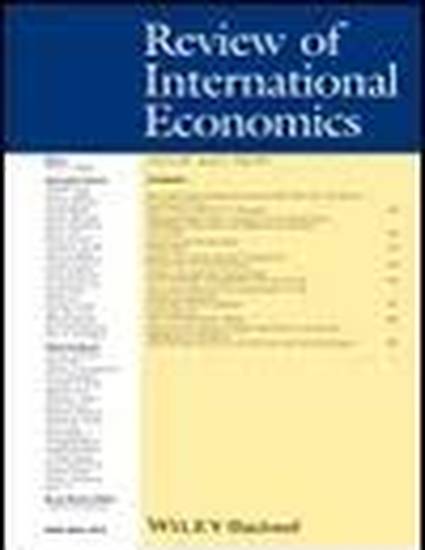
Article
The impact of North‐South and South‐South trade agreements on bilateral trade
Review of International Economics
(2013)
Abstract
Free trade agreements (FTAs) lead to a rise in bilateral trade even if the signatories include developing countries. Furthermore, the percentage increase in bilateral trade is higher for South-South agreements than for North-South agreements. The results are robust across a number of gravity model specifications in which we control for the endogeneity of FTAs (with bilateral fixed effects) and also take account of multilateral resistance in both estimation (with country-time fixed effects) and comparative statics (analytically). Our analytical model shows that multilateral resistance dampens the impact of FTAs on trade by less in South-South agreements than in North-South agreements, which accentuates the difference implied by our gravity model coefficients, and that this difference gets larger as the number of signatories rises. For example, allowing for lags and multilateral resistance, a four-country North-South agreement raises bilateral trade by 53% while the analogous South-South impact is 107%.
Keywords
- Free trade agreements,
- gravity models,
- multilateral resistance
Disciplines
Publication Date
2013
Citation Information
Alberto Behar and Laia Cirera i Crivillé. "The impact of North‐South and South‐South trade agreements on bilateral trade" Review of International Economics (2013) Available at: http://works.bepress.com/alberto_behar/25/
